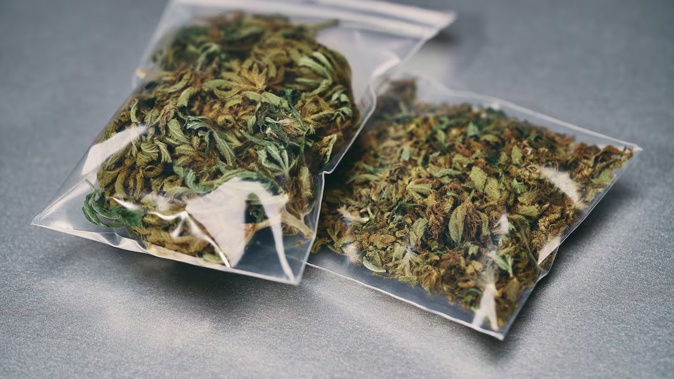

A solo mother who became a “wholesale” cannabis dealer has avoided being sent to jail, but may lose her home.
Veronica Jane Healey Verwey, 30, was netted by police as a result of Operation Vaughan, investigating the supply and sale of cannabis in Hawke’s Bay.
She has been sentenced to 11 and a half months of home detention.
She was given home detention in place of a prison sentence of 23 months – one month shorter than the two-year threshold at which being confined at home on an ankle bracelet is not an option.
The Napier District Court was told at Verwey’s sentencing hearing, that arrangements had been made for the care of her children, aged 8, 5 and 2 years, in the event she was sent to jail.
Dealer was a first-time offender
Judge Gordon Matenga decided on the less restrictive sentence after giving Verwey credit for the fact she was a first offender, and for her early guilty plea and remorse, mental health issues and the effect a prison sentence would have on her children.
However, Judge Matenga also referred to civil court action running alongside Verwey’s criminal prosecution, under which police are trying to confiscate the house where she lives, because she has been spending money on it gained through illegal activity.
The house in Onekawa, Napier, is in the registered ownership of Verwey’s parents, but Veronica Verywey lives there and has been paying the mortgage and for improvements to the property.
Police say these have been paid from the proceeds of Verwey’s cannabis dealing, “when she is not otherwise in receipt of any substantial legitimate income”, apart from a jobseeker benefit.
On an application from the police, the High Court issued a restraining order over the property in March, meaning it cannot be sold.
Property valued at $430,000
Such an order is usually the first step in moves to confiscate property by a further High Court forfeiting of it to the Crown, which commonly follows a few months later.
The house has a 2023 council rates valuation of $430,000.
Verwey faced six charges of selling cannabis or possessing it for supply, related to 34 dealings in the drug between June and October last year.
She was caught after police picked up another person and found evidence on her phone that she was getting “significant volumes” of cannabis from Verwey.
They then obtained data from Verwey’s phone which confirmed those deals and showed she was in regular contact with a supplier.
The District Court was told Verwey’s was “wholesale” trading involving about $100,000 worth of the Class C drug.
“You weren’t selling cannabis at street level; you weren’t at the head or the top of the organisation; you were somewhere in between,” Judge Matenga said.
“It was a commercial operation and you had more than a minor role.”
Court documents show that when police searched Verwey’s property last December, they didn’t find any cannabis.
Nor did they find $140,000 of “buried money” which had been referred to in Verwey’s text messages.
Police came to believe that the reference to burying money in the property was a reference to spending it on expensive home improvements. There were other texts between Verwey and tradespeople.
New kitchen and bathroom fitted
When police searched Verwey’s property last December, they noted a new fence and a large new deck. Inside, there was a new bathroom and a renovated laundry with new appliances.
Under the Criminal Proceeds (Recovery) Act 2009, property is deemed to be “tainted”, and therefore liable for confiscation, if money is spent on it which has been obtained from significant criminal activity.
“I am satisfied there are reasonable grounds to believe that the property sought to be restrained is tainted property, having been directly or indirectly derived from significant criminal activity, namely the sale of cannabis,” Justice Karen Grau said in the High Court.
She issued a restraining order over Verwey’s house.
In the District Court, Judge Matenga said that Verwey had been using cannabis herself to help with her mental health issues and to “stay sane”.
He said the community-based home detention sentence would give her the opportunity to make adjustments in her life which were necessary for her own life, and for the sake of her children.
He imposed conditions which included Verwey using no alcohol or non-prescription drugs, and to attend any counselling or alcohol and drug treatment determined by her probation officer.
Home detention will be served at the house which is subject to the restraining order.
Other people allegedly involved in the cannabis dealing ring are being dealt with separately by the courts.
Ric Stevens spent many years working for the former New Zealand Press Association news agency, including as a political reporter at Parliament, before holding senior positions at various daily newspapers. He joined NZME's Open Justice team in 2022 and is based in Hawke's Bay. His writing in the crime and justice sphere is informed by four years of front-line experience as a probation officer.

Take your Radio, Podcasts and Music with you









